- Home
- Michael White
The Cat Is Back! Page 2
The Cat Is Back! Read online
Page 2
So Todd was a big fan. He didn’t have the bloody Beatles wigs and what have you, but he had all of their albums, all their singles. It looked like he couldn’t have been a bigger fan. Well, on the music side, anyway.
All that changed though, on the day that he found Paul McCartney’s coat.
An Inspector Calls
From the corner of Hesketh Street to the tree lined lane that wound its way towards Grantham's Walk is a swift passage of not more than say, five minutes. Generally a pleasant walk, with trees just the right height waving in the breeze, the traffic here is neither too heavy nor too light. In general suburban terms it could be said that it was pretty much an idyllic area. The houses are generally well moneyed, and if the general area could be said to have any problem whatsoever (and it had to be a little bit of nit - picking, it has to be said), it was a small problem. If a problem at all. If forced to express a derogatory opinion, the general consensus would be that the area was just a little too middle class; a little bit well, twee.
Which in itself is not really any kind of problem at all. If the worst offence that an erring politician could summon was that he was in most opinions, decidedly middle class, or that the military dictator whose latest grand plan involved a lot of: a) drugs, b) lots of money, and c) a certain amount of neat plutonium sitting around doing nothing much at all somewhere in the general area of the Ukraine, (and not necessarily in that order), and if the worst that could be said of such a dictator was that he was, when all was said and done, a little bit, well...twee... then the world would most certainly be a much better place. There would certainly be a lot more Ikea stores, for certain.
So, when all is said and one, not a bad area. The trees were nice. The way the sun set just above the crest of the hill as it climbed back towards the town (Strictly May to August - the locals banked on it), all is pretty much as it should have been. Even the lampposts - evenly spaced, cast iron (very old school), were pretty much pillars of good taste.
Down the hill, towards Cressington Gardens, across the small green and there is the village pub. Much has been written about the place of the modern public house in the role of the community, and much has taken place over the last number of decades to change the role of such a building in society. Amongst other things, the advent of the cheap family car, the rise of the out of town shopping centre, the lures used by the modern public house were many. Cheap food and play areas for the family. Dusty the Clown party bags and endless variations of Pizza and chicken nuggets for the kids. The traps were set, and the public fell into them. So the way went, and so the pub - centre of the community, excluder of children, most women and those financially embarrassed - changed. Or most did.
Charles Horse, licensee, proprietor and landlord (his preferred title), of the Bucket and Shovel public house thought that all of this, of course, was complete and utter bullshit. Not for him the modern pub with Sunday lunch for eight pounds, the quiz night on a Monday and Wednesday. No Siree, Charlie ran a traditional public house, and that meant darts, pool, a nineteen sixties / country and western music jukebox and no food whatsoever. (Apart of course from crisps, nuts, pork scratching’s and pickled eggs. But they of course, don't really count. (Particularly the pork scratching’s and pickled eggs)). As well as these treats there was always fresh sawdust in the bar once a week (whether it was needed or not), tournaments on a rolling basis for darts, pool and a Race night every last Thursday in the month. Charlie believed in the old values. The good old values. And not necessarily family ones, either.
From the outside, the pub looked like any other. This was of frequent embarrassment to carloads of distressed parents on sunny summer afternoons. Keen to offload the kids into the nearest play area, stuff themselves with a good old fashioned pub-produced Sunday roast and the kids with either pizza or chicken nuggets, entering into the Bucket and Shovel could be a salutary experience.
"Excuse me", would stammer a travelling parent, car still outside from where the sound of raucous children could just be heard, "Do you serve Sunday lunch?"
Such a question posed to Charlie would inevitably lead to a smug grin that didn't so much spread across his face as burst its banks and threaten to flood the entire local area.
"Food?" would boom Charlie, pausing to lift a glass from above the bar and polish it with his Cellar man’s apron, "Nah," he would pronounce, and that was it. The potential customer would usually stand there waiting for the next bit of the conversation, but it never actually arrived. No directions to the nearest pub that did sell food, no advice on the best route to take; nothing at all, really. Which would inevitably lead to a small-embarrassed silence, and the eventual departure of the slightly disgruntled, if not confused, customer.
Which most entrepreneurs involved in the management of small businesses would find most odd. But that was the thing with Charlie. It was not that he didn't want to serve customers, or that he did not want to make a decent living. Few people would come to the conclusion after examining Charlie's behaviour that he would love to run a chain of pubs. Simply put, he did. It was his dream. But all of his day dream pubs would be run on the same principles. No food. No kids. No play areas - and definitely no designer beers or wine of the month.
The brewery representative had given up on Charlie in this and most other areas now, instead concentrating on the merits of various manufacturers’ pickled eggs or scampi fries. It wasn't that Charles Horse didn't want to be successful. It was simply that he didn't want the 20th Century. "Nothing wrong with pubs that have food", he would often comment over the bar to any of his locals who would care to listen. "But not in my pub. Not while I'm the landlord."
By appearances most people would assess Charlie as surly. (This opinion would usually be arrived at after a conversation that would commence with an uninformed customer approaching the bar, speaking to Charlie and vocalising something along the lines of, "Good evening, Proprietor. May I order a White Chablis, a Taboo Spritzer beer with ice and a packet of Bombay Spice to nibble on. Oh, and whilst you're at it, can I have a look at the menu?" Charlie would smile his wide smile and positively boom,
"We don't do that, I'm afraid."
"Which one?" would smile the customer, thinking to share some mischievous repartee with the landlord.
"All of it." Would pronounce Charlie, and the smile would become just a little wider.
This however, was not the case. He very much believed in the art of giving the punters what they wanted. As long, of course, as what they wanted fell in line with what he was prepared to deliver. This would usually involve some sort of shenanigans to get the potential diner to part with some money for a drink before he told them that the nearest culinary delight they could look forward to was a packet of scampi fries coupled with a small grimy packet that included four Ritz crackers, a Dairy lea cheese slice and a shriveled pickle onion.
That Charlie had very little trouble in imparting this information had a great deal to do with his rather imposing physical presence. Charlie would often boast that he very rarely had any trouble of any kind in his pub. The fact that the landlord was six foot three and built like one of the steel barrels that contained his relatively mundane real ales could have had a great deal to do with it. The cellar man’s apron that none of his customers had ever seen him without, also helped reinforce this opinion. To say that Charlie cut a somewhat imposing presence was like saying that mount Everest was a big mountain.
The Bucket and Shovel was stuck in a veritable Charlie - induced time warp. This revolved around a rather quaint idea of what the local pub should be, and more directly, what it should not be. And the regulars loved him for it. The great thing about a visit to the Bucket and Shovel was that you always knew what to expect. No sudden surprises or arrivals of "beer of the month" to throw you out of your drinking stride. The pub that Charlie ran had very little to offer that could be filed in the cabinet marked, "rare and interesting life enriching experiences", but you did know that you could get a very reasonable pric
e of bitter, and the date of the next race night could be marked very clearly in your social calendar.
Which meant for a brisk trade. Whilst the more consumer orientated pubs struggled to fill more than a few tables of diners on a Tuesday, Wednesday or even Thursday nights, trade for the Bucket and Shovel stayed at a brisk level for most nights of the week. This had a twofold effect on Charlie's running of the pub. One, it made the weekly order for levels of bitter, lager and other consumables less of a gamble and more of a certainty. The second effect was that it gave Charlie a great deal of leeway with the powers that be at the brewery. In an age in which most hostelries were being converted to “Happy Diners" and the like, Charlie was left very much to his own devices, because basically, his philosophy on the day to day running of the pub made them money. Which suited Charlie - and the brewery - just fine.
Charlie remembered several years ago when a new area manager was promoted straight from university, and his subsequent visit to the Bucket and Shovel. An inkling of a smile crept to the corners of Charlie's face at the memory of it. The poor man had arrived with suggestions of designer beers, cocktail happy hours and talk of video jukeboxes. He had left rather hurriedly barely twenty minutes later with a serious loss of self-esteem and a very large and ticklish flea in his ear. He had stuck the job out for another three months or so before leaving to bring the concept of designer ginger nut biscuits to the masses, and was by all counts doing very well for himself off it too, thank you very much.
The fact that the brewery was happy made Charlie very happy indeed. There could be very little wrong with the opinion of the brewery that all in all Charlie was doing a fine job, and was best left to it. Which had the double effect of making Charlie a relatively happy chap as well. So all was well in the Bucket and Shovel. The brewery was happy. The customers were happy. Charlie was happy. Or at least he thought that he was.
But that was before he found the cigarette lighter.
Squire Bidecombe’s Tree
I.
~ In the village of Tharnet, just before dawn a man sets out on a task, there is a memory of an acorn falling and rain is thought to be on the way. ~
In the year of Our Lord One Thousand Six Hundred and fourty six in the village of Tharnet, just before dawn, Henry Bracebridge was a man in a hurry. It was a cold foggy morning and as he made his way down the lane, the covered lantern he held out before him was his only protection against the dark. A sharp wind made his progress slow, his cloak blowing around him. Across the meadows the dull sound of the shepherds bells rang dully as if muffled by the pre-morning mist.
In his head Henry was considering the tasks set before him by the squire. All in all it should be a relatively simple chore and accordingly he had engaged a number of villagers that he thought he would require to aid him in accomplishing said business. He snorted aloud as he wondered whether Abraham Sprottle would arrive at the church yard before him. “Almost certainly he is still a-bed and here’s I out in the dark with the shepherds coming in from the hills.” he thought to himself as he picked his way over the rough stone strewn path, carefully making his way in the dark. He believed that he may have smelt rain in the air but he continued nonetheless on his way in the darkness. He knew that dawn would break soon, which should coincide with his arrival at his destination.
It was a week ago that Bartholomew Bidecombe, in his capacity of squire to the village had summoned Henry to the churchyard (of which the squire was the custodian), to discuss a matter that he had considered to be most pressing. It had been a bright but breezy Autumn morning when Henry had met the squire at this location. The squire’s horse and cart stood underneath the huge Oak Tree that straddled the church side of the path. Curiously, the squire seemed to be wandering amongst the graves spread about the church, muttering to himself and occasionally stooping to pick something up, and then almost immediately throwing whatever he had found away once more. The squire’s man servant, Oswyn Pelletoot, seemed also to be engaged in a similar task, but did not seem to be throwing away whatever it was that he was picking up, stowing whatever he was collecting in a fold of his smock that he held before him like a small sack. As Henry watched however, Oswyn stumbled and dropped all of whatever he was holding all around him. He loudly uttered a curse and the squire stopped immediately what he was doing, staring at Oswyn.
“Sorry, Squire” he muttered, which earned him a scowl from his master. Oswyn immediately began collecting his dropped treasure once more, and as Henry got nearer he could now see that the pair of them seemed to be collecting acorns. Henry remembered pausing on the path before he crossed over to the squire, and wondering what by the devil’s name they were doing. His observations had been interrupted however, as the squire suddenly noticed that Henry had arrived. Standing up and straightening his hat he rubbed his hands together as if to shake the dust from them and came to meet Henry.
“Squire.” nodded Henry and Bidecombe nodded to him in return.
“Damned acorns, Henry” he sighed, eying Oswyn out of the corner of his in case of any remonstration, and Henry could see that although he was no longer collecting acorns he still remained somewhat in a state of agitation. “Something needs to be done. They are all over the church yard. Graves and all, even though they are on the other side of the church! It is just not right!”
Henry noticed Oswyn out of the corner of his eye who was still busy collecting acorns into the fold in his smock. “I am sure Oswyn is suffice to the task, squire” Henry remembered replying, and the squire looked confused at this.
“I consider Oswyn to be most definitely insufficient at all things not related to ale or whoring” he had remarked, leaning closer to Henry as if imparting some form of secret knowledge. “Yet you are correct. Gathering acorns is not beyond him.” He stared across to Oswyn, who was by now positively brimming with acorns and had the look of a man who was not sure where to deposit them. Squire Bidecombe sighed loudly. “And yet...” Henry smiled too.
“But Henry, I did not bring you here to watch Oswyn Pelletoot over there performing his usual buffoonery. We must address the issue at its source.” His face brightened as he considered his words. “At its root, perhaps” and to Henry’s surprise the squire winked at him. Henry had attempted to look not too lost by the conversation but it must have been to some degree apparent to the squire that Henry was floundering. The squire cleared his throat loudly.
“The tree, Henry” he pointed, “That is the root of our inconvenience. Once a year the whole church yard is assailed by acorns. Everywhere they are. The tree must go.”
Henry looked up through the branches of the huge oak tree. The tree had stood on the edge of the churchyard since he was a boy, and it had been even more mountainous to him then than it was now.
“They are only acorns, squire” Henry had replied, and the squire had suddenly looked on the edge of agitation again.
Only acorns, you say?” he enquired, rubbing his hands together more vigorously again. “Yet I feel that is an affront to the gentleman of the cloth and God himself, to which I am now party. It is my church, is it not?”
Henry had nodded in agreement.
“Therefore it is my tree too.” he waved dismissively at the oak and frowned at it. “And it must go, Henry. It must surely come down.”
“There were no acorns at all last year” Henry had offered, but the squire had frowned once more, a slight colour now rising to his cheeks.
“Are we to rely upon such providence?” he had spat, and Henry was fully aware that this was not in any way a question. “I am away to my brothers across the county at the start of next week and I shall be away for two nights. “I want that tree felled by my return. See to it Henry.”
Henry made to query the squires plan but he was already making his way back to the cart. Over his shoulder he called, “Make sure it is done true, Henry! Brook no errors in this. I am sure to rely upon you.”
Henry had stood open mouthed as the squire had knocked all of the acorns out o
f Oswyn’s smock as he went past him, tutting as he went. “Come along, fool!” he had snarled as he made his way back to the cart. Oswyn had scampered up on to the cart after him and soon the pair were gone down the path, leaving Henry gazing up at the Oak.
Henry had stood looking up through the branches of the Oak tree into the blue of the bright autumn sky. A light wind caught the branches and as he watched acorns began to fall around him. He had shook his head sadly at the thought of it, but the squire’s mind seemed to be made up. The tree must go. Slowly he had walked around the base of the tree. He had estimated that the tree must be some twenty feet or so wide, and perhaps some seventy feet high, with a spread of about fifty feet. “Axes as well as saws” he had thought to himself, and so he had begun to formulate a way to fell the oak.
Over the course of the next few days he had gathered a crew of sorts, villagers who had the right tools, and enough them not just to fell the tree (though that would be a task in itself) but also to move it once it had been felled. Barnaby Gerville, Tobias Quintin, Cuthbert Pursglove and Solomon Ruggenall he had consulted and all had agreed to give their assistance. Of course in truth they all had little option. Henry was uniformly recognised as being the head of the village tradesmen, and as village blacksmith was a very important man by his own right, which of course was why the squire had called upon him. However, once Henry conveyed that the request came from the squire himself then there was little to do but undertake Henry’s plan, and to fell the tree.

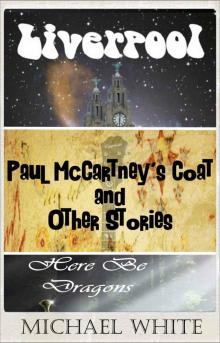 Paul McCartney's Coat
Paul McCartney's Coat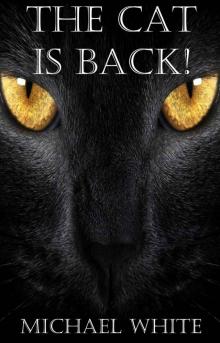 The Cat Is Back!
The Cat Is Back!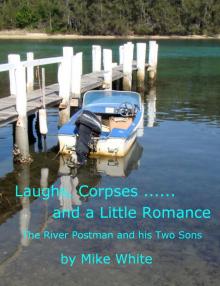 Laughs, Corpses... and a Little Romance
Laughs, Corpses... and a Little Romance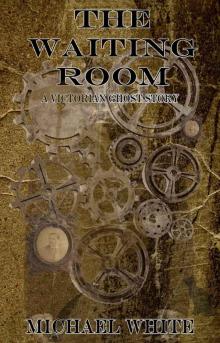 The Waiting Room
The Waiting Room Into the Light- Lost in Translation
Into the Light- Lost in Translation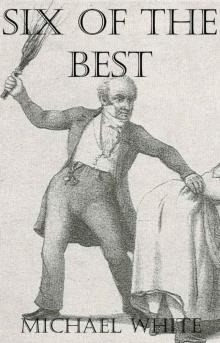 Six of the Best
Six of the Best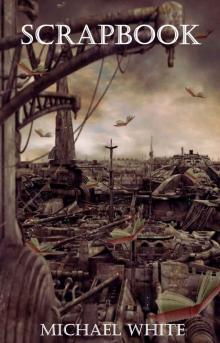 Scrapbook
Scrapbook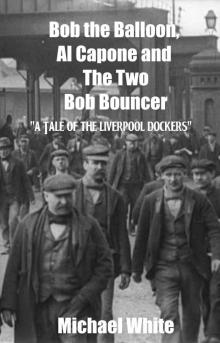 Bob the Balloon, Al Capone and the Two Bob Bouncer
Bob the Balloon, Al Capone and the Two Bob Bouncer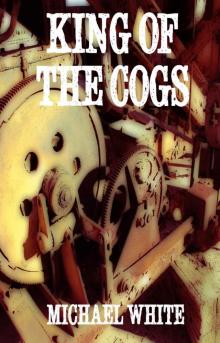 The King of the Cogs
The King of the Cogs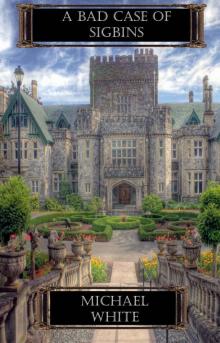 A Bad Case of Sigbins
A Bad Case of Sigbins To the Lighthouse
To the Lighthouse Overboard!
Overboard!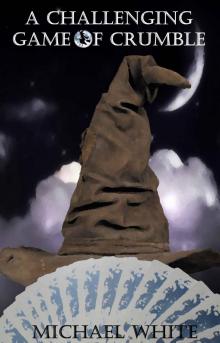 A Challenging Game of Crumble
A Challenging Game of Crumble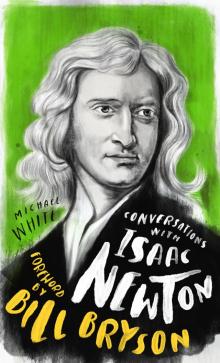 Conversations With Isaac Newton
Conversations With Isaac Newton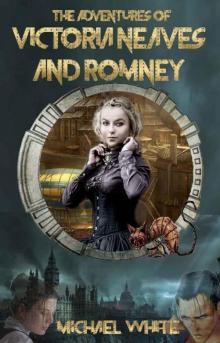 The Complete Adventures of Victoria Neaves & Romney
The Complete Adventures of Victoria Neaves & Romney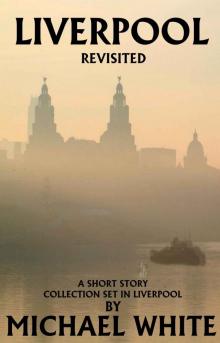 Liverpool Revisited
Liverpool Revisited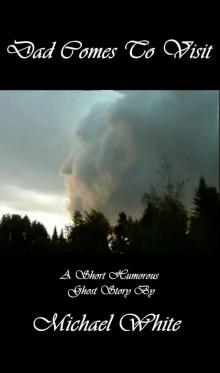 Dad Comes to Visit
Dad Comes to Visit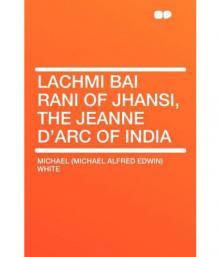 Lachmi Bai, Rani of Jhansi: The Jeanne D'Arc of India
Lachmi Bai, Rani of Jhansi: The Jeanne D'Arc of India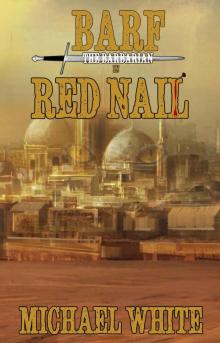 Barf the Barbarian in Red Nail (The Chronicles of Barf the Barbarian Book 2)
Barf the Barbarian in Red Nail (The Chronicles of Barf the Barbarian Book 2)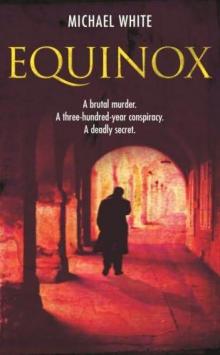 Equinox
Equinox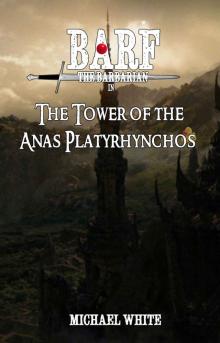 Barf the Barbarian in The Tower of the Anas Platyrhynchos (The Chronicles of Barf the Barbarian Book 1)
Barf the Barbarian in The Tower of the Anas Platyrhynchos (The Chronicles of Barf the Barbarian Book 1)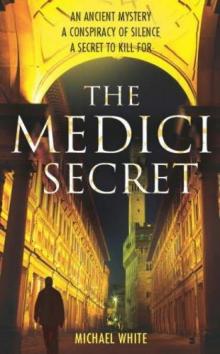 The Medici secret
The Medici secret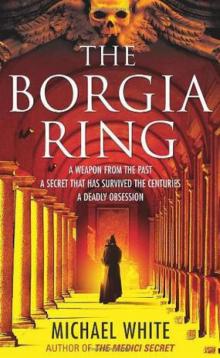 Jack Pendragon - 02 - Borgia Ring
Jack Pendragon - 02 - Borgia Ring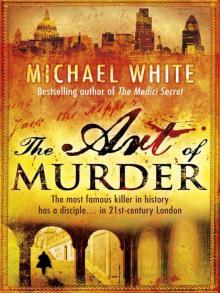 The Art of Murder jp-3
The Art of Murder jp-3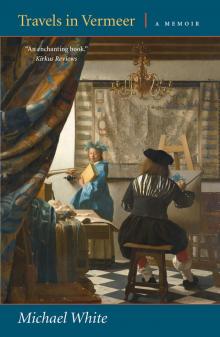 Travels in Vermeer
Travels in Vermeer